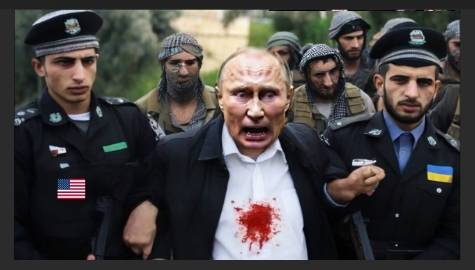In recent weeks, a notable diplomatic confrontation has emerged between Russia and the United States over influence in Africa. At the heart of the dispute is Russia’s assertion that the U.S. is engaging in a form of neo-colonialism through its support of educational programs, media partnerships, and non-governmental organizations (NGOs) across the continent. This narrative, presented by Russian Foreign Ministry spokesperson Maria Zakharova, underscores a broader competition between the two powers for ideological and geopolitical sway in Africa.
Russia’s Accusations
In a media briefing in October 2024, Zakharova sharply criticized the U.S. for what she described as an attempt to impose Western values on African nations. She accused the United States of using education and media programs to subtly push its governance models and societal norms, framing it as a modern continuation of colonial attitudes. According to Zakharova, the U.S. is engaging in a "soft power" approach, using these initiatives to shape African societies in a manner beneficial to Western interests, a move that Moscow views as undermining African sovereignty.
This stance reflects a broader trend in Russia's foreign policy, where it positions itself as a defender of national sovereignty and an opponent of Western liberalism, particularly in regions like Africa, where historical grievances against colonial powers still resonate deeply.
The Geopolitical Context
Russia's criticisms are not happening in a vacuum. In recent years, Africa has become a focal point for geopolitical competition between major powers, including the U.S., Russia, and China. While the U.S. and Western allies often promote democracy and human rights, Russia has positioned itself as a partner that does not interfere in the internal affairs of African states, offering military assistance, economic partnerships, and media collaborations without preconditions related to governance or human rights.
This rivalry has deepened as African countries become increasingly important players on the global stage, not only because of their resources but also due to their strategic importance in global organizations like the United Nations.
The Battle for African Media and Education
Russia’s media outreach in Africa has been growing, particularly through state-controlled outlets like RT (Russia Today) and Sputnik. These platforms provide an alternative to Western media narratives, often highlighting stories that criticize Western actions or promote Russian policies. The criticism of U.S.-backed educational and media programs fits into this broader strategy, with Russia framing its involvement in Africa as more respectful of local autonomy compared to the U.S.
The U.S., for its part, has long maintained that its educational and media initiatives in Africa are designed to empower civil society, support economic development, and foster democratic governance. Through programs like the U.S. Agency for International Development (USAID) and the African Growth and Opportunity Act (AGOA), Washington seeks to strengthen ties with African nations by providing assistance in education, healthcare, and technology, with an emphasis on human rights and democratic reforms.
The Legacy of Colonialism
Russia's accusation of neo-colonialism taps into a historical sensitivity in Africa. Many African nations experienced brutal colonization by European powers, and the lingering effects of this period continue to influence political and societal discourse. By framing the U.S.'s actions as a continuation of colonial practices, Russia is attempting to align itself with African nations' desire for self-determination and economic independence.
However, critics argue that Russia's intentions in Africa are not entirely altruistic. While Moscow positions itself as a supporter of African sovereignty, it is also seeking to expand its influence, particularly through arms deals, military support, and resource agreements. Thus, the battle for Africa’s ideological and political loyalty is not just about values, but also about economic and strategic interests.
The ongoing debate between Russia and the U.S. over influence in Africa is a reflection of the broader geopolitical struggle for power in the region. While the U.S. defends its efforts as promoting democracy and development, Russia’s criticisms resonate with historical grievances about colonialism and foreign interference. As Africa becomes a key battleground for global influence, the competing narratives from Moscow and Washington will continue to shape the continent’s future.


